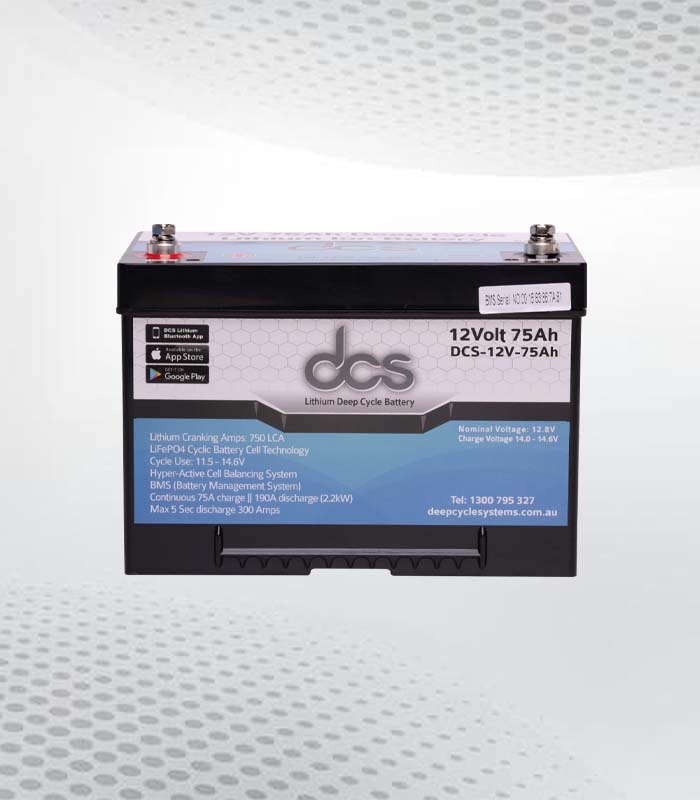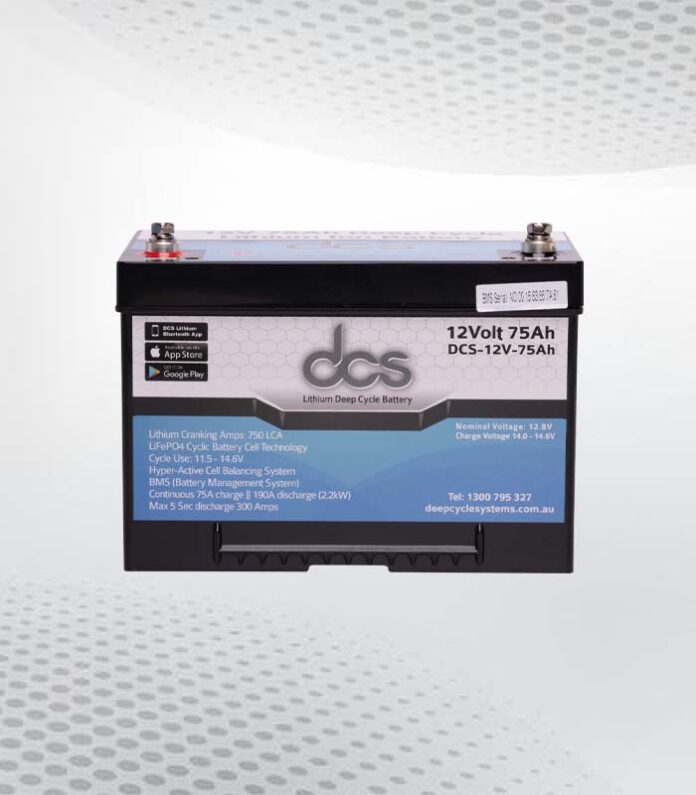When it comes to powering your deep cycle applications, having a reliable and long-lasting battery is crucial. That’s where lithium ion batteries come in. These advanced batteries have gained popularity in recent years due to their superior performance and durability. In this blog post, we’ll dive into the world of deep cycle battery lithium and explore why lithium ion is the top choice for powering your off-grid adventures, marine vehicles, and more.
Understanding the Basics of Deep Cycle Batteries
Deep cycle batteries are specially designed to provide a consistent and reliable power source over a longer period of time. Unlike starter batteries, which are primarily used to start an engine, deep cycle batteries are designed to discharge a smaller amount of current over a longer period of time.
The key difference between deep cycle batteries and other types of batteries lies in their construction. Deep cycle batteries are built with thicker plates and denser active material, which allows them to withstand frequent and deep discharges without suffering from performance degradation.
The Advent Of Lithium Ion In Deep Cycle Batteries
In recent years, there has been a significant shift in the world of deep cycle batteries with the advent of lithium ion technology. This groundbreaking development has revolutionized the way we power our off-grid adventures, marine vehicles, and other deep cycle applications.
Lithium ion batteries offer a range of advantages over traditional lead-acid batteries, making them the superior choice for deep cycling. One of the key benefits of lithium ion technology is its lightweight design. Compared to lead-acid batteries, which can be bulky and heavy, lithium ion batteries are significantly lighter, making them easier to transport and install.
Another major advantage of lithium ion batteries is their longer cycle life. These batteries can endure thousands of charge and discharge cycles without losing capacity or performance. This means you can rely on them for longer periods of time, reducing the need for frequent replacements.
Additionally, lithium ion batteries have faster charging capabilities, allowing you to recharge them quickly and get back to your adventures in no time. This is especially important for off-grid applications, where access to a power source may be limited.
Advantages Of Lithium Ion Deep Cycle Battery
Lithium ion batteries have become the go-to choice for deep cycling applications, and for good reason. They offer a multitude of advantages over traditional lead-acid batteries, making them the superior option for powering your off-grid adventures, marine vehicles, and other deep cycle applications. One of the key advantages of Lithium Ion Deep Cycle Battery is their incredible energy density.
It means they can store more energy in a smaller and lighter package compared to lead-acid batteries. This not only makes them easier to transport and install, but also allows for more efficient use of space in your deep cycle setup.
In addition to their compact size, lithium ion batteries also have a longer lifespan compared to lead-acid batteries. They can endure thousands of charge and discharge cycles without losing capacity, which means you can rely on them for longer periods of time before needing to replace them. This not only saves you money in the long run but also reduces the environmental impact of frequent battery replacements.
Another major advantage of lithium ion batteries is their faster charging capabilities. With the ability to charge at a much faster rate than lead-acid batteries, you can get back to your adventures in no time. This is especially beneficial for off-grid applications, where access to a power source may be limited.
How To Choose A Lithium Ion Deep-Cycle Battery?
When it comes to choosing a lithium ion deep-cycle battery, there are a few key factors to consider. First and foremost, you’ll want to determine your power requirements. This includes considering the amount of energy you’ll need to store and the rate at which you’ll be using it. By understanding your power needs, you can choose a battery with the appropriate capacity and discharge rate.
Next, it’s important to consider the voltage of the battery. Deep cycle batteries are available in various voltage options, such as 12V, 24V, or even higher. Make sure to choose a battery with the correct voltage for your specific application.
Another factor to consider is the size and weight of the battery. Depending on where you’ll be using it, you’ll want to ensure that the battery is compact and lightweight enough for easy transport and installation.
In addition, consider the brand and reputation of the battery manufacturer. Look for a reputable company with a track record of producing high-quality batteries that are reliable and long-lasting.
Lastly, don’t forget about the warranty and customer support. A good warranty will give you peace of mind knowing that the manufacturer stands behind their product, and reliable customer support will be invaluable if you ever have any questions or issues.
By taking these factors into consideration, you’ll be well-equipped to choose the perfect lithium-ion deep cycle battery for your needs. So go ahead, power your off-grid adventures and marine vehicles with confidence, knowing that you’ve made the right choice.
Lithium Ion Deep Cycle Batteries: A Sustainable Solution
When it comes to powering your deep cycle applications, sustainability is an important factor to consider. Fortunately, lithium ion deep cycle batteries offer a sustainable solution that not only meets your power needs but also reduces your environmental impact.
One of the main reasons lithium ion batteries are considered sustainable is their longer lifespan compared to traditional lead-acid batteries. These batteries can endure thousands of charge and discharge cycles without losing capacity, which means you won’t have to replace them as often. This not only saves you money in the long run but also reduces the number of batteries that end up in landfills.
Furthermore, lithium ion batteries are also more energy-efficient compared to lead-acid batteries. They have a higher energy density, which means they can store more energy in a smaller and lighter package. This not only allows for more efficient use of space in your deep cycle setup but also reduces the amount of resources needed to manufacture and transport the batteries.
Safety Features Of Lithium Ion Deep Cycle Batteries
When it comes to deep cycle batteries, safety is of utmost importance. Luckily, lithium ion batteries are designed with a range of safety features to ensure that your power needs are met without any potential hazards.
 One of the key safety features of lithium ion batteries is their built-in protection circuitry. This circuitry helps to monitor the battery’s voltage, current, and temperature, ensuring that they remain within safe operating limits. If any of these parameters exceed the acceptable range, the protection circuitry will automatically shut off the battery to prevent any damage or safety risks. This provides peace of mind, knowing that your battery is constantly being monitored and protected.
One of the key safety features of lithium ion batteries is their built-in protection circuitry. This circuitry helps to monitor the battery’s voltage, current, and temperature, ensuring that they remain within safe operating limits. If any of these parameters exceed the acceptable range, the protection circuitry will automatically shut off the battery to prevent any damage or safety risks. This provides peace of mind, knowing that your battery is constantly being monitored and protected.
Additionally, lithium ion batteries are designed with thermal management systems. These systems help to regulate the battery’s temperature, preventing it from overheating and potentially causing a fire or explosion. Through the use of sensors and cooling mechanisms, such as fans or heat sinks, lithium ion batteries are able to maintain a safe operating temperature even during heavy use or charging.
The Future of Deep Cycle Power: Lithium Ion Technology
As we look to the future of deep cycle power, one technology stands out above the rest: lithium ion. The advent of lithium ion technology in deep cycle batteries has completely revolutionized the way we power our off-grid adventures, marine vehicles, and other deep cycle applications.
Lithium ion batteries offer a range of advantages that make them the clear choice for deep cycling. With their lightweight design, longer cycle life, and faster charging capabilities, they provide superior performance and reliability.
But the future of deep cycle power goes beyond just these benefits. As technology continues to advance, we can expect even more exciting developments in lithium ion batteries. We may see increased energy density, allowing for even more power to be stored in a smaller and lighter package. They may also see improvements in charging times, making it even faster to get back to your adventures.
FAQs
Q: How long do lithium ion deep cycle batteries last?
A: Lithium ion batteries are known for their long lifespan. On average, they can endure thousands of charge and discharge cycles without losing capacity, making them a durable and reliable choice for deep cycling applications.
Q: Are lithium ion batteries safe?
A: Yes, lithium ion batteries are designed with multiple safety features to ensure your peace of mind. They have built-in protection circuitry that monitors voltage, current, and temperature to prevent any potential hazards. Additionally, thermal management systems help regulate the battery’s temperature and prevent overheating.
Q: Can I use a lithium-ion deep cycle battery in my marine vehicle?
A: Absolutely! Lithium ion batteries are a great choice for marine vehicles. They are lightweight, compact, and have a longer lifespan compared to traditional lead-acid batteries. Plus, their fast charging capabilities make them perfect for getting back on the water quickly.
Conclusion
In conclusion, it’s clear that a Deep Cycle Battery Lithium is the superior choice for deep cycling. With their lightweight design, longer cycle life, and faster charging capabilities, they offer unmatched performance and reliability. Deep cycle batteries are essential for powering off-grid adventures, marine vehicles, and other deep cycle applications, and lithium ion technology has truly revolutionized the way we do so.

